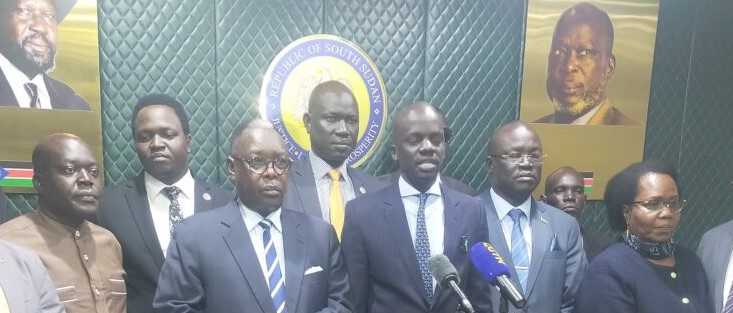South Sudan’s electoral institutions — the National Election Commission, the National Constitution Review Commission and the Political Parties Council — have submitted their report on the feasibility of holding long-delayed elections.
The world’s youngest country has yet to go to the polls after its independence from Sudan in 2011.
“We have listened to the report of the electoral institutions, and we shall be listening to the report of the security institutions in the next meeting,” said Puot Kang Chuol, a member of an inter-party committee tasked with reviewing the implementation of the 2018 peace deal and the roadmap.
Tut Gatluak, the presidential advisor on national security affairs, chaired the meeting in Juba on Thursday.
Puot, who is also the minister of petroleum, told the media that they were yet to review and deliberate on the details of the report submitted by the three institutions “aimed at providing a realistic timetable for political leaders to agree upon for the elections”.
“We are only listening to the institutions as the high-level committee, and we really appreciate them because they have responded to the questions forwarded to them. We will go and analyze all of them and come up with a precise and direct recommendation to the leadership,” he explained.
The official urged the people of South Sudan and the international community to wait as the committee finalizes its work on developing a feasible timetable for conducting elections to peacefully end the transitional period.
Last week, the presidency and the leaders of political parties agreed to seek technical advice from the electoral institutions on the feasibility of conducting upcoming elections.
The 2018 peace agreement paved the way for a transitional coalition government and laid out a roadmap for general elections.
But in August 2022, South Sudan’s parties agreed to extend the transitional period for another 24 months to February 2025, and elections have been tentatively set for December 22 this year.
However, key provisions of the deal, including the creation of a permanent constitution and the unification of armed forces, remain unfulfilled.
South Sudan has struggled to recover from the 2013-2018 conflict that killed 400,000 people and drove millions from their homes, and it is still plagued by intercommunal violence.




